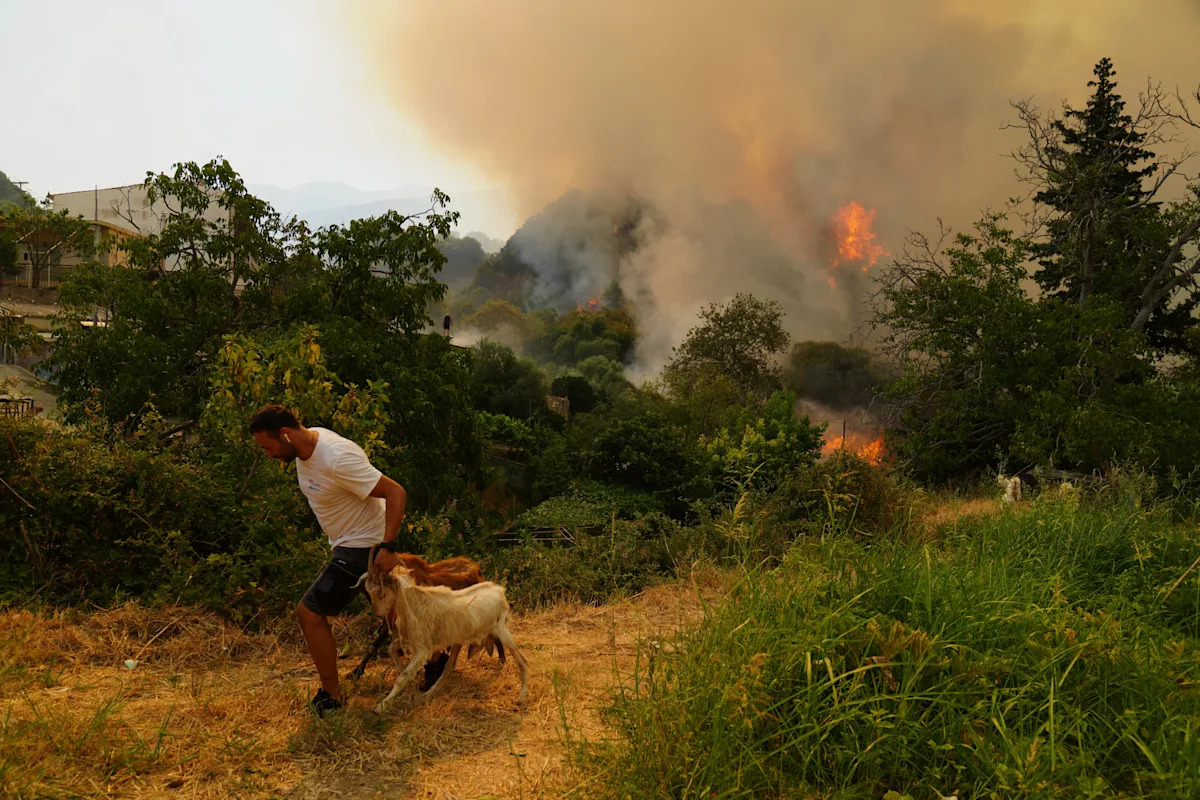A recent study reveals that climate change has significantly intensified the wildfires that ravaged Turkey, Greece, and Cyprus this summer. According to research conducted by World Weather Attribution (WWA), these fires were 22% more intense than they would have been without the effects of climate change. The wildfires, which resulted in the deaths of 20 individuals, forced the evacuation of approximately 80,000 people, and consumed over 1 million hectares (2.47 million acres) of land.
The research highlighted that the summer of 2025 marked the worst year on record for wildfires in Europe. In June and July, temperatures soared above 40 degrees Celsius (about 104 degrees Fahrenheit), contributing to the dry conditions and strong winds that exacerbated the situation. WWA, a group of scientists that investigates the links between extreme weather events and climate change, described the findings as “concerning.”
Impact of Climate Change on Wildfire Intensity
The study’s lead researcher, Theodore Keeping, from the Centre for Environmental Policy at Imperial College in London, emphasized the strong connection between climate change and the rising intensity of wildfires. He stated, “Our study finds an extremely strong climate change signal towards hotter and drier conditions.” With current global warming at 1.3 degrees Celsius, the study warns that without significant reductions in fossil fuel use, temperatures could rise by up to 3 degrees Celsius this century.
Furthermore, the study found that winter rainfall prior to the wildfires had decreased by approximately 14% since the pre-industrial era. This reduction has made conditions more favorable for wildfires, as spells of dry, hot air that prepare vegetation for burning are now 13 times more likely to occur. The analysis also noted an increase in the intensity of high-pressure systems that have fueled extreme northerly winds, known as Etesian winds, which further fanned the flames.
Challenges for Firefighters
According to Gavriil Xanthopoulos, research director at the Institute of Mediterranean Forest Ecosystems in Greece, firefighters previously relied on natural wind patterns to help control wildfires. “It seems that they cannot count on this pattern anymore,” Xanthopoulos remarked, emphasizing the unpredictable nature of current wind conditions. He called for further research to understand why these wind patterns are reaching higher velocities more frequently.
In a supportive analysis, Flavio Lehner, an assistant professor in Earth and atmospheric sciences at Cornell University, noted that WWA’s findings align with existing literature about the impact of climate change on weather patterns conducive to wildfires. He stated, “Climate change is loading the dice for more bad wildfire seasons” in the Mediterranean region.
The findings of this study underscore the urgent need for global action on climate change. As the Mediterranean region faces increasingly severe weather conditions, the importance of transitioning away from fossil fuels becomes more critical to mitigate the risks of future wildfires.
The Associated Press continues to cover climate and environmental issues with the support of multiple private foundations, ensuring that the focus remains on objective reporting and factual integrity.








































































